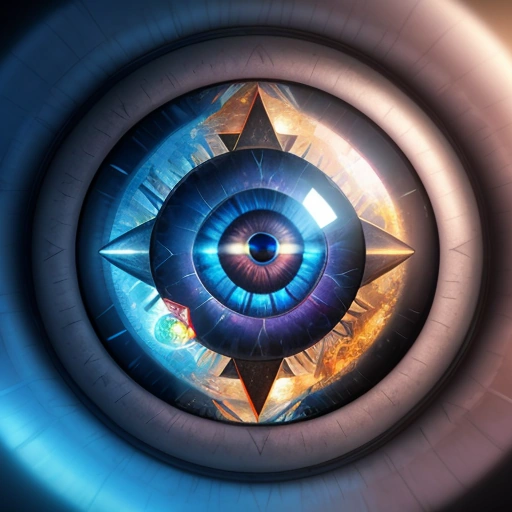janAkali
- 1 Post
- 11 Comments

 6·20 days ago
6·20 days agoI believe for many companies, developers work on giant codebases with many hundred thousands or even millions of lines of code.
With such large codebase you have no control over any system. Because control is split between groups of devs.
If you want to refactor a single subsystem it would take coordination of all groups working on that part and will halt development, probably for months. But first you have to convince all the management people, that refactor is needed, that on itself could take eternity.
So instead you patch it on your end and call it a day.

 18·2 months ago
18·2 months agoWandavision was a 10/10 series for me, until they reintroduced all the usual boring superhero marvel slop back.
It had interesting characters, humor, mystery, weird unsettling feeling when simulation was a bit off. But they had to ruin it and replace with lots of bad CGI effects.

 21·9 months ago
21·9 months agoWell, then you have to find another name for that kind of software and define it that way. I certainly would support such an effort, i.e. to make software available to everyone at no cost.
There’s no need to come up with new terms or change the existing ones. Free software is inherently free in price. And you can’t enforce paying for software without the restrictions put in place (e.g. drm). Here’s a quote from https://www.gnu.org/philosophy/selling.en.html :
With free software, users don’t have to pay the distribution fee in order to use the software. They can copy the program from a friend who has a copy, or with the help of a friend who has network access. Or several users can join together, split the price of one CD-ROM, then each in turn can install the software. A high CD-ROM price is not a major obstacle when the software is free.
Free software can have a price, but paying it is optional.

 2·9 months ago
2·9 months agoI meant that free software is inherently can’t have a price. Even if you provide source code only to your users, they are free to share that source code for free.
Thus there can’t be piracy because piracy of free software is inherently allowed.
And if you try to prevent your users from sharing the source either legally or with drm - you add restrictions to software, making it less free for your users.
The recent situation with RedHat provides good demonstration and example of this.

 1421·9 months ago
1421·9 months agoIt’s free as in freedom, not as in free beer.
But you can’t have one without the other. Putting a cost on software is adding a restriction, thus making it less free (as in freedom).
Free software should be available to everyone, even to people who don’t have money to pay for it (poor third world countries, students, kids).
I personally believe, that you should pay for software that helps you earn money. For everything else - it’s everyone’s own decision to donate or not, based on a financial situation, beliefs, political position and what not.

 4·10 months ago
4·10 months agoI guess it’s just a real handwriting on a note with everything around inpainted.

 20·1 year ago
20·1 year agoThere’s a separate syntax for quotes in markdown:
> This is a quote. whole paragraph is still a quote with a single '>' and even newlines are preserved and long lines are perfectly soft-wrapped, isn't it useful? > > empty lines should have '>' if they're part of quote > this is a separate quote, because line above doesn't have '>'This is a quote. whole paragraph is still a quote with a single ‘>’ and even newlines are preserved and long lines are perfectly soft-wrapped, isn’t it useful?
empty lines should have ‘>’ if they’re part of quote
this is a separate quote, because line above doesn’t have ‘>’

 10·1 year ago
10·1 year agoNot a language per se, but subsets of languages used for fantasy consoles usually do not implement import functionality. TIC-80, PICO-8, etc. etc. WIKI I wouldn’t call that a feature, but it drives you to write less and more space-optimized code.
Now that I think about it, source code size could be a feature in itself, look at codeGolf-oriented esolangs:- Pyth
- CJam
- GolfScript
- Microscript/Microscript II
- Seriously
- Rotor
- Minkolang
- Gaia
- Jelly
- 05AB1E
- japt
- and more…

 1·1 year ago
1·1 year agoWhile most of the time, I remember my password, I know I could just snap and forget it right there at any point. Happened to me not once. And I’m in my 20s. Sometimes when I forget a password, I just start typing and muscle memory kicks in, sometimes it doesn’t. I guess our brains are not optimized to store long random strings of characters. You could use a long sentence as your master password or do as I do:
Come up with a way to make up a long seemingly random password from a couple words. Then if/when you forget a password, just remember those words and reconstruct password from them.
- Don’t use common dictionary words or anything from popular media, as it could be guessed by attackers.
- You can write down algorithm on a piece of paper and keep it somewhere safe.
- Words should be related but not directly:
- two asteroid names - bad
- asteroid name and it’s greek translation - bad
- real city name and city name from a book - good
- two words that both start with S and end with T - good
- If you forget both words, you should be able to remember/look up at least one of them if you still remember how you came up with the word.

 2·1 year ago
2·1 year agoNot only that, bcrypt could be run by GPUs and FPGA, that makes it more prone to bruteforcing attacks.
There are 2 modern alternatives: scrypt and argon2. They both require a substantial amount of memory, so gpu and hardware computation is no longer feasible.

Oh, and GBA rom is included with game files.